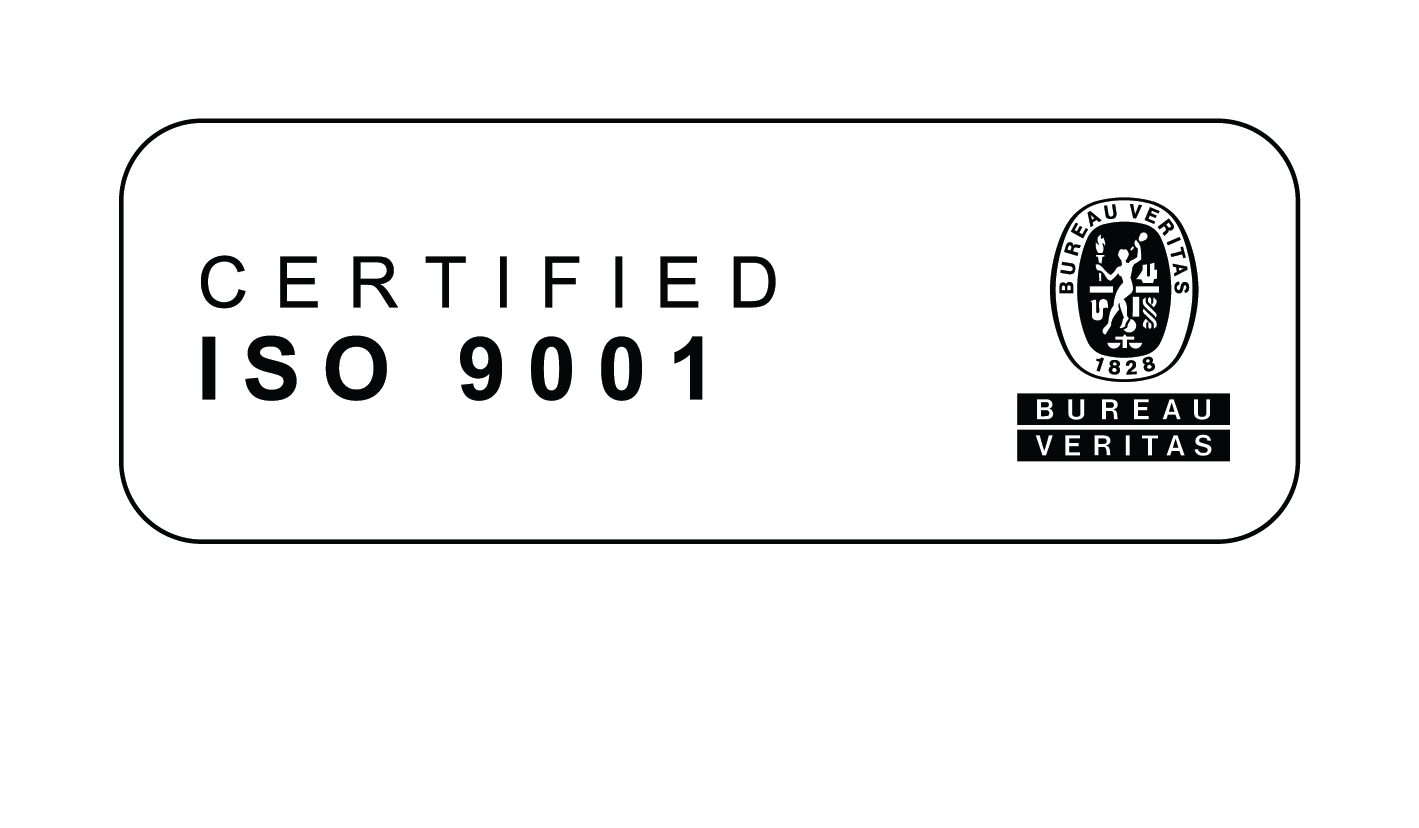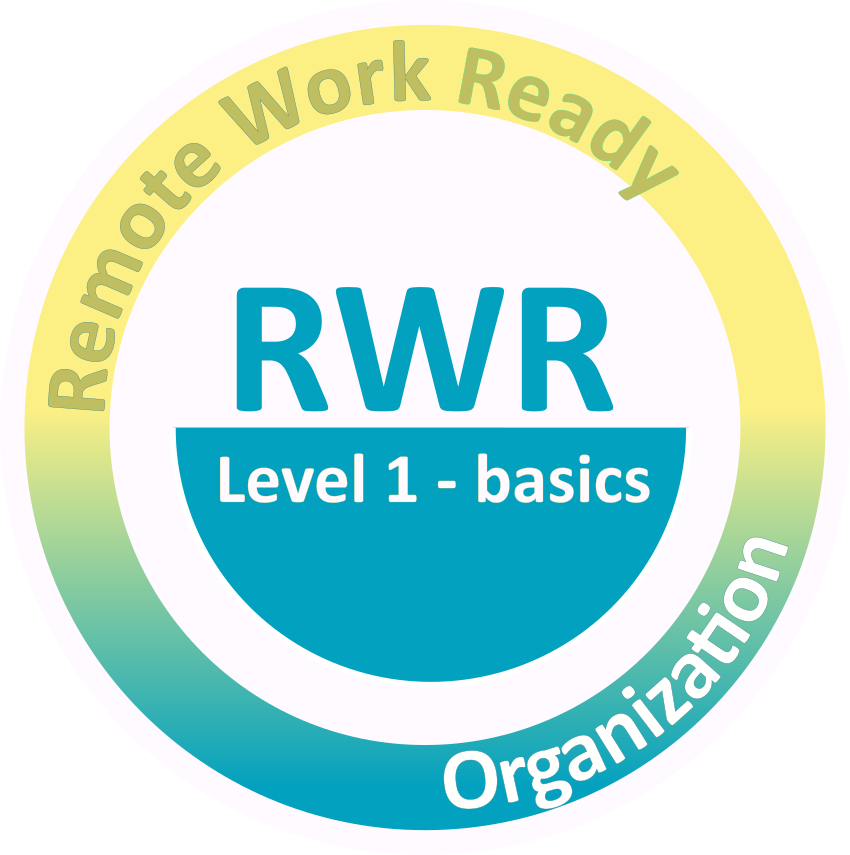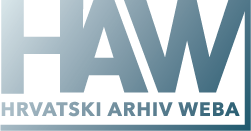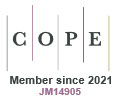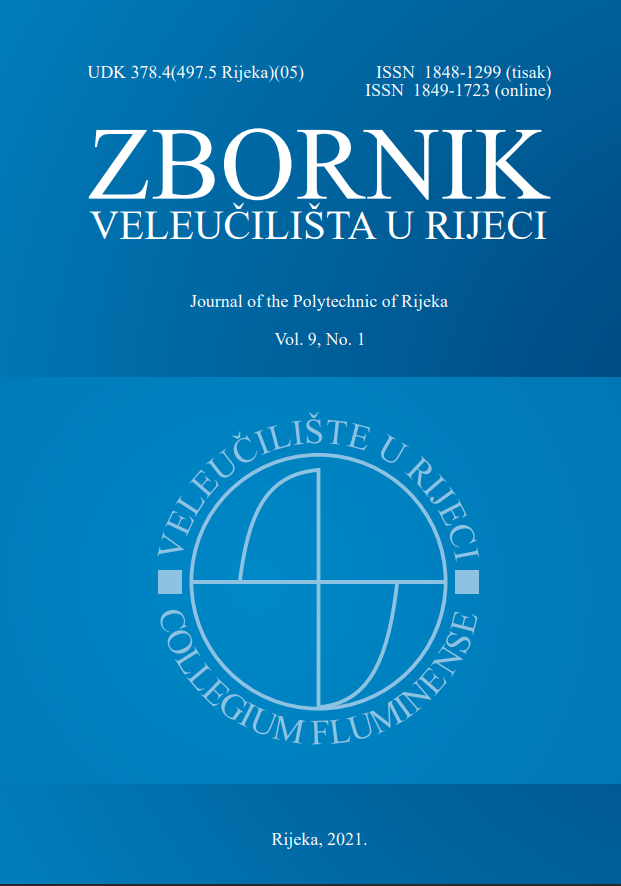Journal Policy
The Journal of the Polytechnic of Rijeka is a peer-reviewed international multidisciplinary journal open for collaboration with scientists and experts in the field of social, technical, biotechnical and natural sciences. The Journal is open to all researchers globally, regardless of gender, career stage or ethnic and religious affiliation. It publishes original scientific and professional articles, critical book reviews and other relevant contributions that have not been published previously, in different fields of economics, information and communication technologies, computing, traffic and transport technology, agronomy and applied mathematics. The Journal is dedicated to take a prominent role in providing an information base for improvement of theory and practice in these fields.
The paper submitted to the Journal must be relevant to international scientific and professional public with clearly defined objectives and results of the research, a conclusion, references in the text and a bibliography at the end of the paper. The ideas presented in the paper must be original, considerably contributing to the development of the topic researched with a clearly described methodology.
Contributions to the Journal shall be submitted in Croatian or English, with summaries in both languages.
All articles submitted that are in accordance with the conception of the Journal will be reviewed by two anonymous and independent reviewers and categorized into one of the following categories according to the prescribed classification of scientific and professional papers: original scientific paper, preliminary communication, review article, conference paper, professional paper.
The Journal is owned and published by the University of Applied Sciences of Rijeka.
Application and Assessment Process
The manuscript is delivered together with the Application form, which includes the signing of the Copyright Statement, consent to submitting the paper to the reviewing procedure and Statement – consent for personal data collection, processing and sharing (if there is more than one author, every author has to sign the statement and consent).
If there is more than one author, all of the authors must contribute to the scientific results and findings to a sufficient extent to be regarded for co-authorship. Guest authorship without the actual involvement of the co-author and Ghost authorship without listing the real author are considered as unethical behaviour.
When writing articles authors must pay special attention to the appropriate structuring of the text and its length which should be in line with the accepted standards of scientific methodology. The manuscript should not exceed 7000 words including abstracts, keywords, footnotes, tables, references, captions and appendices, and the manuscript should not be published or sent to another publisher for publishing.
The Editorial Board accepts applications in a prescribed form (Application form contains an extended summary from 250 to 500 words) and a manuscript (written using the Template; it is recommended to write the text in the third person and in the passive voice). By signing the Copyright Statement in the Application Form the author confirms the originality of the paper and authorship. By signing the Copyright Statement the author also asserts compliance with the review process.
All applications go through the assessment process carried out by the members of the Editorial Board (according to the subject area addressed), as well as by other experts who are not members of the Editorial Board in the case of specific content. The Editorial Board reviews the submitted manuscripts and decides on the further procedure as follows:
a) which manuscripts, in case it is necessary, will be returned to the author with suggestions, recommendations and comments with the scope of improving the primarily methodological presentation of research materials;
b) which manuscripts will go through the review process;
c) which manuscripts will be rejected since:
- the subject matter does not meet the required scientific or professional level;
- the author has already published an article on a similar topic;
- the subject matter does not meet the Journal criteria, particularly if the content is beyond the concept orientation of the Journal and does not meet the methodological standards that the Journal must comply with.
If an article is not accepted, the Editorial Board notifies the author. If the author has accepted comments and suggestions given in the assessment process and has improved the text according to the requests made, the manuscript is then sent to the review process (double-blind review).
Other contributions, such as: books reviews or doctoral dissertations reviews, reviews of international conferences and other scientific meetings/gatherings, do not go through the review process. The Editorial Board chooses and edits reviews they consider relevant for publication in the Journal and in line with the editing policy concept.
Reviews of books and other contributions should be written as a critical review and their length should not exceed 8 typed double-spaced pages.
The Editorial Board reserves the right to reject/return texts to authors which do not meet the guidelines criteria, or to fully adapt contributions to comply with the Journal editing rules. Authors have to comply with all the editing and other guidelines provided by the Editorial Board. Contributions should be written in standard language free of spelling and grammar mistakes. The authors are responsible for language editing. The final version of the positively evaluated paper must be proofread, and submitted together with the signed proofreading confirmation by professional proofreaders. Before the final publication of accepted articles, a test print will be sent to authors to proofread, and at this stage, only misprints will be corrected.
Editorial Board disclaims responsibility for language and printing errors.
If none of the authors speaks Croatian, the Editorial Board will provide a translation of the article summary (including the title and key words) into Croatian.
In order to maintain the highest level of publishing ethical standards the Editorial Board of the Journal of the Polytechnic of Rijeka follows the recommendations of the COPE Code of Conduct for Journal Editors (https://publicationethics.org/).
Review Process
All articles submitted for publication are reviewed by two anonymous and independent reviewers. The names of the authors will also be unknown to the reviewers. Reviewers evaluate the article following some already given criteria by filling in a reviewer evaluation form. If the reviewers find that the article does not meet international standards and the Journal criteria, the Editorial Board does not accept the article. If the reviewer gives a positive review the article can be categorized into one of the following categories: Original scientific paper, Preliminary communication, Review article, Conference paper, and Professional paper.
Reviewers should carefully follow the Guidelines for reviewers.
After the reviews have been completed the Editorial Board analyzes them. Reviewer's comments are sent to the author after both reviews are received. If necessary, the author needs to adjust his/her paper to the reviewer's demands. In case it is necessary, the Editorial Board may ask the third reviewer for an opinion. After the author resubmits the paper, the Editorial Board verifies whether the article has been revised following the reviewers' comments and suggestions.
Only categorized papers given two positive reviews are published. After the review process has been completed and the articles changed and revised by the authors and the Editorial Board, the Editor-in-Chief proposes the sequence of the accepted articles in the table of contents.
The criteria for the order in which the articles will appear in the Journal are:
- Categorization according to a level of scientific excellence;
- If the reviewers have categorized the article in different categories, the Editor-in-Chief proposes the categorization in favour of the author, i.e. to a higher category;
- The topicality of the theme, author and the Journal's field of interest in the case when articles have been assigned the same level of scientific excellence (category).
The review process is usually completed within three to five months and accepted articles are usually published within six months (that is, in late May/early June).
Plagiarism – Copyright Statement
By submitting the manuscript with the completed Application form and a signed Copyright Statement, the authors declare that the text of the article is their original work, does not contain any plagiarism and has not been published anywhere else or submitted to any other journal.
If plagiarism is found, a whole article will be removed from the journal and replaced with a note indicating the authors´ names and a description of the plagiarism. Authors and their institutions will be notified.
In order to detect and avoid plagiarism, each manuscript is checked using Crossref Similarity Check (iThenticate).
Journal AI policies
- Journal of the Polytechnic of Rijeka does not accept manuscript that use chatbots as co-authors. The reason for this is that LLMs do not satisfy our authorship criteria as they cannot bear responsibility for the accuracy, integrity, and originality of the content they generate.
- Journal of the Polytechnic of Rijeka does not accept manuscripts that use chatbots as sources. The reason for this is that content generated by LLMs is not reproducible or traceable and can accidentally contain third-party material without identifying it as such.
- Journal of the Polytechnic of Rijeka does accept manuscripts that use chatbots as tools supporting research and writing processes (scaffolding). Acceptable purposes include research design, the formulation of RQa, proofreading, feedback on structure and style, general brainstorming, translations, data analyses, data visualization, and coding. Authors who use generative technologies in this manner need to acknowledge this at relevant locations in their manuscripts. This can be done in the following manner:
- For general scaffolding such as brainstorming, feedback on structure and style, research design, or proofreading, please add an acknowledgement at the end of your manuscript that contains information about the type of language model or other tool you employed as well as when and how you used it.
- For translations, please add a footnote to the part translated that contains information on the type of language model (or other machine translator) you employed, the prompt(s) you used, the date, and the original version of the text.
- Using LLMs for data analysis and coding purposes constitutes a significant methodological intervention. In such cases, please add a part to the methods section of your manuscript where you explain how you proceeded including the type of language model you employed, the prompt(s) you used (excluding the material to be coded or analyzed), the date, and a link to the dataset.
- When using chatbots for data analysis: please keep in mind that most generative LLMs that are freely available do not adhere to accepted standards for the handling of personal or sensitive data. Make sure you only use models that have been approved by your research institution or other reliable bodies.
- For general scaffolding such as brainstorming, feedback on structure and style, research design, or proofreading, please add an acknowledgement at the end of your manuscript that contains information about the type of language model or other tool you employed as well as when and how you used it.
- Before using LLMs or other generative technologies, please consider the ecological and human costs connected to these applications.
- Journal of the Polytechnic of Rijeka does not use LLMs or other generative technologies for assessing incoming manuscripts. However, we check for possible plagiarism using the Crossref Similarity Check (iThenticate) cross-reference tool.
Copyright and Licensing
By signing the Copyright Statement authors declare that the article has not been published in its current or similar form anywhere else and that the manuscript has not been submitted to any other journal. Authors guarantee that their paper represents an original contribution and that its publication will not infringe any existing copyright. Authors are fully responsible for the content of the submitted manuscript and they will incur all costs if an unauthorized use of copyrighted material is found.
By signing the Copyright Statement authors assign to the Polytechnic of Rijeka the copyright of the manuscript intended for publication if and when the article is accepted for publication. This includes the rights to supply the article in all forms and media, that is the non-exclusive and spatially and temporally unlimited transfer of the following rights: right of reproduction, including the right to be stored in electronic form, right of distribution and right to make available to the public.
By signing the Application form (Copyright Statement) the author gives consent to publish the article according to the rules of a CC BY-NC licence.
Publication Ethics and Malpractice Statement
Authors, editors, editorial board members and reviewers are obliged to adhere to ethical standards available here.
Ethical Complaints and Retraction Policy
Complaints to Journal of the Polytechnic of Rijeka should be submitted by email to zbornik@veleri.hr. Complainants should describe the subject and nature of their complaint and provide supporting documentation. The Editors will, in consultation with the Editorial Board if necessary, assess any complaint on its merits, take any necessary remedial action, and respond to the complainant.
Every reported act of unethical publishing behaviour will be considered and reasonable responsive measures will be taken (contacting the authors, relevant institutions, the publication of a correction, retraction, or other note).
Once an article has been published, errors that affect the meaning of content or that relate to data or citations can be corrected. A correction notice including a list of changes, publication date of the original article and the date of the correction, and where to obtain the original article will be added to the end of the corrected articles.
If errors are found that are so significant (serious errors that may invalidate an article’s results or conclusions), the article will be removed and replaced with a note stating the reason for the retraction (we will follow COPE’s Retraction Guidelines).
By submitting the manuscript with the completed Application form and a signed Copyright Statement, the authors declare that the text of the article is their original work, does not contain any plagiarism and has not been published anywhere else or submitted to any other journal. If plagiarism is found, a whole article will be removed from the journal and replaced with a note indicating the authors´ names and a description of the plagiarism. Authors and their institutions will be notified.
Fees
The Journal of the Polytechnic of Rijeka does not charge article submission, processing or publication fees (non-APC model).
Publication Frequency
The Journal of the Polytechnic of Rijeka is published annually, in May/June.
Open Access Policy
The Journal of the Polytechnic of Rijeka supports an open-access policy, which enables unrestricted access to published papers in order to contribute to easier knowledge exchange. It doesn’t charge any fees either to readers to read, nor to authors to publish.
The Journal is freely available online through the Portal of Croatian scientific and professional journals – Hrčak - platform for Croatian Open Access journals, and through the journal website.
The usage of full-text of the articles can be used exclusively for personal, research-related or educational purposes, with regard to the authors' and publishers' rights. The rights to use the papers are defined by the Creative Commons CC BY-NC 4.0. licence.
According to the above-mentioned, users are allowed to read, download, copy, distribute, print and transform or use them for any other lawful purpose as long as they attribute the source in an appropriate manner and for the non-commercial purpose of the usage.
By signing the Application form the author gives consent to publish the delivered paper in The Journal of the Polytechnic of Rijeka according to the rules of a CC BY-NC licence.
The papers published in The Journal of the Polytechnic of Rijeka can be deposited and self-archived in the institutional and thematic repositories providing the link to the Journal's web pages or HRČAK. According to the self-archiving policy it is allowed to archive post-print (final draft post-refereeing) publisher's version of the paper (authors must use the publisher’s PDF).
The Journal of the Polytechnic of Rijeka as an open-access journal, has adopted the Budapest Open Access Initiative (BOAI) policy of “free availability on the public internet, permitting any users to read, download, copy, distribute, print, search, or link to the full texts of these articles, crawl them for indexing, pass them as data to software, or use them for any other lawful purpose, without financial, legal, or technical barriers other than those inseparable from gaining access to the internet itself. The only constraint on reproduction and distribution, and the only role for copyright in this domain, should be to give authors control over the integrity of their work and the right to be properly acknowledged and cited” (http://www.budapestopenaccessinitiative.org/read).
Journal policies will be revised if required, considering the new findings in the field of journal editing and publishing and the effects of journal policies on authors’ and reviewers’ behaviour.
Digital Preservation
The Journal is digitally preserved in the Digital Collections of the National and University Library in Zagreb, Croatian Web Archive, at the Portal of Croatian scientific and professional journals – Hrčak and at the journal website - Past Issues.
UDK: 378.4(497.5 Rijeka)(05) https://doi.org/10.31784/zvr
ISSN 1848-1299 (Print) ISSN 1849-1723 (Online)
The usage of full-text of the articles can be used exclusively for personal, research-related or educational purposes, with regard to the authors' and publishers' rights.
